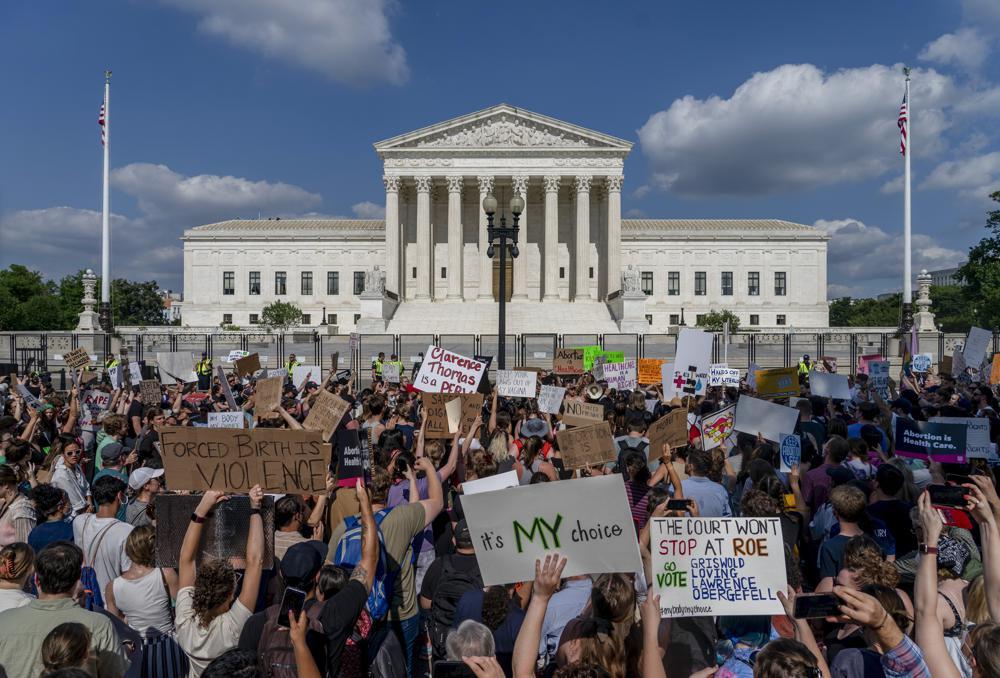The US Supreme Court’s decision to overturn Roe vs Wade and removing the constitutional right to abortion, has deep implications for health and reproductive rights in the US and globally. It is a violation of fundamental human rights for women and pregnant people internationally; ensuring that abortion will become illegal or highly restricted in twenty US states, criminalizing women and pregnant people, and entering an era of unsafe abortion.
“At Share-Net International, we believe that all people have the freedom of choice, are able to make their own informed decisions, and can access and take action on their sexual and reproductive rights and needs. This decision is a direct violation of our core values – we condemn this decision in the strongest terms and will continue to further access to SRHR knowledge and information in all ways possible.”
We firmly believe that SRHR services are a fundamental element of human rights, including the right to access safe abortion, self-determination, and the ability to make informed choices over bodily autonomy. We stand in solidarity with those who protect and advocate for abortion rights and access in the US and globally, and those seeking abortion information and access.
Removing access to abortion care does not stop abortions or the need for abortion, forcing those seeking abortion services/care to find unsafe and illegal ways to terminate pregnancies. Abortion bans constrict peoples control over their bodies and futures, disproportionately affects historically and structurally marginalized peoples, and could lead to the repeal of other rights. Criminalizing abortion also opens space for those who have naturally lost their pregnancies through miscarriages or experienced a stillbirth to be potentially investigated as a crime. Things like online browsing and search histories, text messages, location data, and information from period-tracking apps could all be used as indictors by prosecutors that pregnancy loss may have been a deliberate act[ion]. The implications are astonishingly worrying for the SRHR world and reproductive rights.
Through our work with various low- and middle- income countries, we witness abortion laws and access to critical healthcare like abortion, varying greatly in different parts of the world. While there are progressive changes and a global trend towards decriminalization – Argentina, Benin, Colombia, Mexico, South Korea, and Thailand have all decriminalized abortion in the past year – the US steps backwards and becomes an outlier in the trend towards decriminalization. We are deeply concerned about the wider and global implications of this. Already, there are signals from the US supreme court about potential future contraception access.
Share-Net International will continue to fight for better access to SRHR and the production of SRHR knowledge globally. We stand by all women and pregnant people in solidarity, and will not stop advocating for these fundamental rights.
Share-Net Country Hubs – Access to abortion care
Across Share-Net’s country hubs, we see a wide variety of different laws in access to abortion services. You can find an overview below, and view a global map of the World’s Abortion Laws by the Centre for Reproductive Rights here.
Bangladesh – only permitted if a risk to life
Burundi – only permitted if a risk to life or a risk to death
Burkina Faso – only permitted if a risk to life, risk to death, because of rape, or because of fetal impairment
Colombia – no restrictions up to 24 weeks
Ethiopia – no restriction up to 28 weeks if pregnancy is a risk to life, risk to death, or because of rape or fetal impairment
Jordan – only permitted if a risk to life or death
Netherlands – up to 24 weeks by request, for social or economic reasons or by rape; unlimited access if a risk to life, death, or because of fetal impairments

